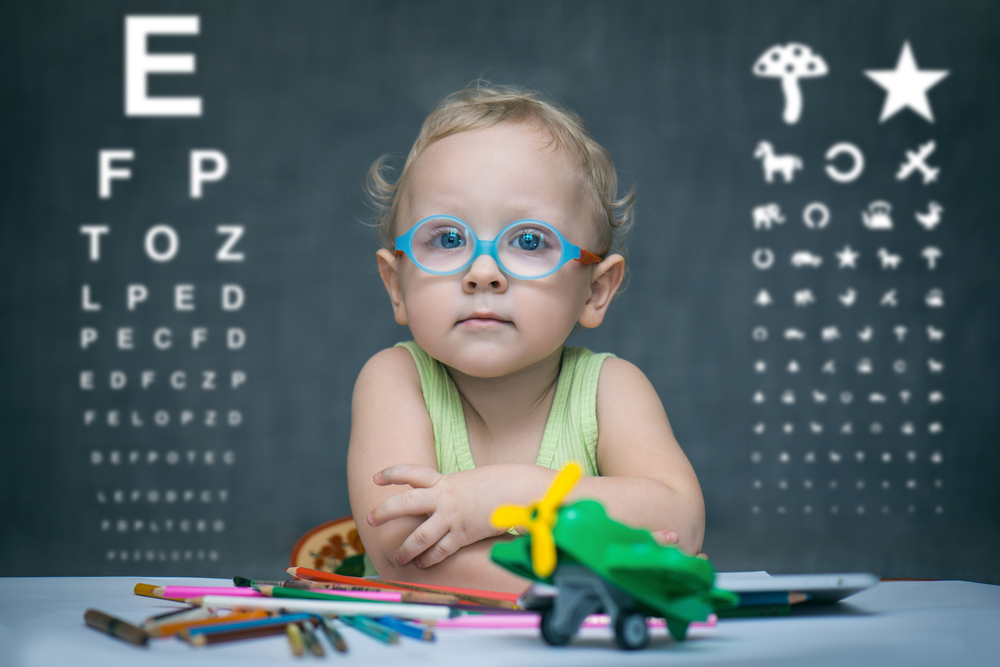
Vision is a vital part of a child's growth and learning process. From identifying shapes and colors to reading books and exploring their surroundings, clear vision lays the foundation for cognitive and physical development. However, children often do not realize they have vision problems because they assume everyone sees the way they do. This makes it crucial for parents and caregivers to recognize the signs of vision issues early.
Undiagnosed vision problems can lead to developmental delays, academic struggles, and even behavioral issues. Understanding the signs of vision problems can empower you to take action before these issues impact your child’s quality of life.
Frequent Squinting or Closing One Eye
Squinting or covering one eye is a common way children compensate for blurry or double vision. It can indicate refractive errors like nearsightedness, farsightedness, or astigmatism. Lazy eye (amblyopia) or eye misalignment (strabismus) are other potential culprits. Left untreated, these conditions can lead to permanent vision loss or difficulties in depth perception.
Tilting or Turning the Head to Focus
Children who tilt or turn their head to see better may be compensating for alignment issues like strabismus or vision imbalance between the eyes. This behavior can also strain neck muscles and cause discomfort over time. Consistent head tilting when reading, watching television, or looking at distant objects should prompt a visit to the eye doctor.
Excessive Eye Rubbing
While occasional eye rubbing is normal, frequent rubbing could signal eye fatigue, dryness, or blurry vision. It might also indicate digital eye strain from too much screen time—a growing concern among children today.
Sitting Close to Screens or Holding Objects Too Near
Does your child sit mere inches from the TV or hold books unnaturally close to their face? This could be a telltale sign of nearsightedness (myopia), a condition where distant objects appear blurry.
Myopia is increasingly common in children due to genetic factors and prolonged screen use. Early detection is key to slowing its progression with treatments like glasses, contact lenses, or even myopia control therapies.
Difficulty Reading or Writing
Children with vision problems might lose their place while reading, skip words or lines, or struggle with handwriting. These issues often stem from poor eye coordination or difficulty focusing. Vision problems can hinder reading comprehension, leading to frustration and academic challenges. This may also cause children to feel less confident in the classroom.
Complaints of Headaches or Eye Pain
Headaches or discomfort in the eyes, especially after schoolwork or screen time, can point to eye strain. These symptoms are often linked to uncorrected refractive errors, focusing problems, or prolonged digital device use. Children might describe this as "tired eyes" or say their eyes feel "funny." Regular breaks from screens and a proper vision exam can help resolve these issues.
Avoiding Certain Activities
Vision problems can make activities like reading, playing sports, or even coloring unpleasant. If your child avoids these tasks or shows frustration while performing them, it could be due to difficulty seeing clearly.
Light Sensitivity or Watery Eyes
Excessive tearing or sensitivity to bright light can signal underlying eye conditions such as corneal abrasions, eye infections, or uncorrected refractive errors. Ignoring these signs can lead to worsening symptoms or complications that affect vision long-term.
When Should Your Child See an Eye Doctor?
The American Optometric Association recommends that children have their first comprehensive eye exam by six months of age, followed by additional exams at age 3 and before starting school. After that, routine exams every year are essential.
If your child displays any of the above signs, don’t wait for their next routine exam. Scheduling an appointment promptly can prevent more serious complications and ensure your child receives the support they need.
Why Choose Albright Eyecare for Pediatric Vision Care?
We are passionate about safeguarding your child’s eye health. We specialize in pediatric eye care, providing thorough exams designed to detect even subtle vision problems. Using state-of-the-art technology and a compassionate approach, we work closely with parents to create personalized treatment plans tailored to your child’s needs.
Reach out to Albright Eyecare to schedule a comprehensive eye exam and help your child see the world clearly. Contact our office in New Braunfels, Texas, by calling (830) 271-4900 to book an appointment today.










